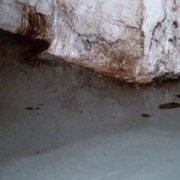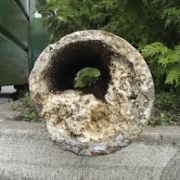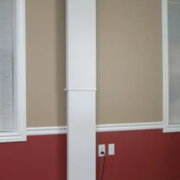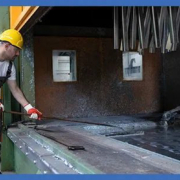Is DIY Waterproofing a Good Idea?
DIY Waterproofing: Yes or No?
In most cases, the quick answer is no—do-it-yourself waterproofing is not a good idea. It is actually cringe-worthy in most situations. DIY waterproofing usually involves inexperienced and ill-prepared homeowners who do a patch work job with the wrong tools and the wrong materials. We have actually fixed some pretty ridiculous DIY waterproofing jobs. Common bathroom caulking will not fix a concrete crack, and a wooden box will not work as a sump pit.
However, there are times and situations when a handy homeowner can successfully accomplish some aspects of waterproofing him or herself.
Some manufacturers have a DIY consumer kits for both new construction waterproofing and retrofit jobs. The most common DIY kits are for foundation crack repair. You can buy a foundation crack repair kit to inject your concrete cracks with commercial-grade epoxy or polyurethane. It is important to remember these kits are not cheap and do require some level of skill. Many DIY kits are sold directly through the manufacturer, and they do offer some virtual training.
Exterior Waterproofing and Drainage Systems
Exterior waterproofing and drainage can be down by the homeowner. An ambitious homeowner can buy a perforated pipe, drain fabric and washed rock and rent a small excavator from a local hardware store and dig an exterior French drain. If you take on such a project make sure you review the OSHA trench safety guidelines and know where to install the French drain to benefit your yard. Some areas have restrictions and standards as to where you can install a French drain due to the storm drains and water systems. Make sure you contact your local utility company to identify the utility lines and the building code officials to see if there are any restrictions to French drains in your area.
Gutters and Downspouts
It is also the homeowner’s responsibility (and almost a good DIY job) to maintain the gutter system. Most people don’t think of the downspouts and gutters as being part of a basement or crawl space waterproofing system, but they are. It is actually more so a water diversion system. Make sure water is not dumping by the foundation. Excess water in the soil can cause hydrostatic pressure that can build up and damage the foundation wall. This is one part of waterproofing that is always a DIY project or at least your responsibility to hire someone to clean and maintain the gutters and downspouts.
Sump Pumps and Interior Systems
While you can buy a sump pump from a local hardware store, it is most likely not what you will get from a professional basement waterproofing contractor. And you could install it yourself; however, it will most likely not be part of a full basement waterproofing system to keep the basement dry year round.
An interior drainage system actually can get a little more complicated. What system is best will be determined by your house and your current water issues in the basement. If you are looking to fix a basement waterproofing problem or have active leaks, they will need to be addressed first.






